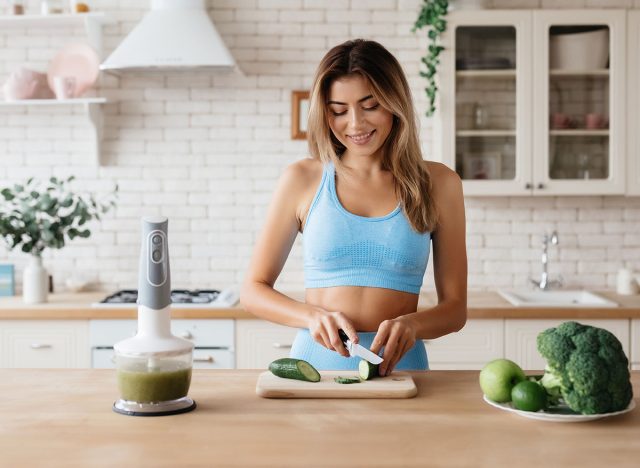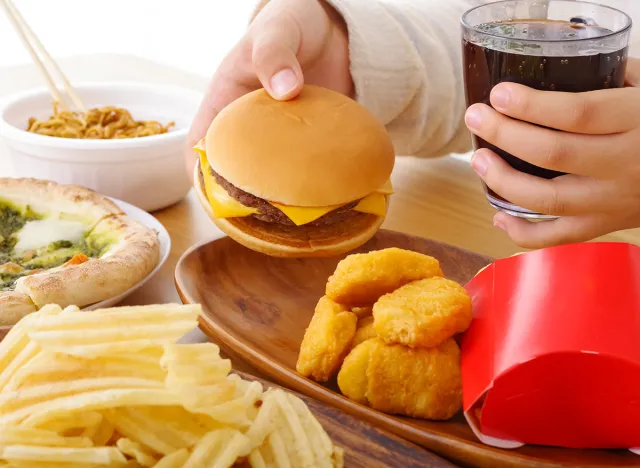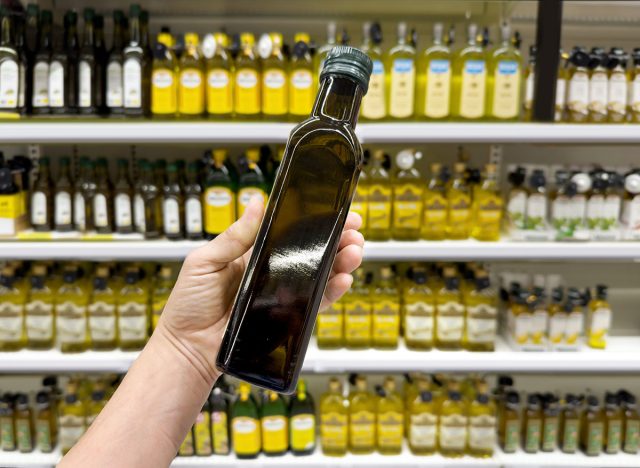5 Ways Seed Oils Are Silently Damaging Your Health, Expert Warns

You've ditched the cigarettes and loaded up on "heart-healthy" vegetable oils. But what if those gleaming bottles of corn and canola oil are actually destroying your health faster than a smoking habit? Dr. Kate Shanahan, a family physician and metabolic health advocate, drops a bombshell while talking to the hosts of This Podcast Burns Fat, Dr. Lori Sheek and Omar Cumberbatch—revealing reasons why seed oils could be harmful. However, not all experts agree with this stark assessment. Let's explore both perspectives.
Uncover the Sneaky Presence of Seed Oils

Seed oils lurk in countless foods — even those marketed as healthy. In podcast, Dr. Kate warns that these oils are in "a lot of foods that we consider healthy foods, like people who go on a diet, they want to eat some low calorie frozen meals. So they'll go with something like Healthy Choice or Lean Cuisine."
Consider the Context of Seed Oil Consumption

Cleveland Clinic dietitian Julia Zumpano, RD, LD, offers a more nuanced view: "Seed oils themselves aren't necessarily toxic. The problem lies in how they're used in our diets." She explains, "Most seed oils are being utilized in the form of processed packaged foods, fast foods, and eating out. That's where most of the danger lies."
Memorize the Common Culprits

Dr. Kate advises memorizing the most common offenders: "corn, canola, cottonseed, soy, sunflower, safflower." Then, scrutinize every label before buying packaged foods. She emphasizes, "The first thing you can do is memorize the six of 'em that are going to be in ingredients…"
Become a Food Package Detective

Dr. Kate continues, "And then once you've done that, the next thing you should do is before you buy anything that has an ingredients list, turn that package around, get out your magnifying glass if you need to, and look and scan for ingredients."
Embrace Home Cooking

Zumpano agrees that being aware of what's in our food is crucial, but adds, "Try to cook at home as often as possible and purchase foods that have simple ingredients. That's always my No. 1 recommendation."
RELATED: I'm a Nutritionist and Here Are 19 Protein Truths You Need to Hear
Understand the Cellular Impact

Dr. Kate argues that seed oils wage war on every cell in your body. She explains: "They chemically assault them… Our cells are wrapped in a membrane that is a fluid membrane that is kind of like the brain of the cell. It allows the nutrients to come in and it has to allow the waste products to pass out. It's a highly, highly beautifully orchestrated complex thing. Our cell membranes, and when we eat these toxins, we damage it."
Consider the Effects of Oil Processing

Zumpano offers a more moderate perspective on the processing of seed oils: "Most seed oils go through the refining process, which includes bleaching and deodorizing. This helps with the taste, color and shelf life, but it also removes the oils' antioxidants." While this processing can reduce some beneficial properties, she doesn't characterize it as a "cellular assault."
Grasp the Inflammation Connection

Dr. Kate suggests that cellular damage from seed oils triggers widespread inflammation—the root of countless chronic diseases. She adds, "When you eat these toxins, you damage it. You polymerize the polyunsaturated fatty acids within that cell membrane, and that is burning your flesh."
Balance Your Omega Fats

Zumpano acknowledges the potential for inflammation but frames it differently: "Seed oils themselves have high levels of omega-6 fats, which can lead to inflammation." She explains that the issue is more about balance: "The omega-6 to omega-3 ratio should be ideally 2:1 or 1:1, but for most Americans, the ratio is actually a whopping 10:1 or even 20:1."
Explore the Link to Chronic Diseases

Dr. Kate points out a correlation between the rise of seed oil consumption and chronic disease rates: "When I first started learning about these oils about 20 years ago, one of the first things I realized was that we were eating a whole ton of these oils. And I hadn't learned about that in medical school. And I also looked back to the statistics… more people were struggling with weight, diabetes, heart attacks were increasingly common and deadly."
RELATED: These 5 Breakfasts Helped Me Blast Body Fat in My 40s – Recipes Included!
Recognize the Role of Processed Foods

While Zumpano doesn't directly address this correlation, she suggests that the broader issue is the prevalence of processed foods in our diets: "When you cut seed oils from your diet, what you're really doing is cutting out many processed foods. I think that's why we're hearing about them as being so bad for your health. But it's less about the seed oils themselves and more about the fact that they're so often found in ultra-processed foods."
Choose Your Cooking Oils Wisely

To reduce your intake of potentially harmful seed oils, both experts recommend cooking at home more often and choosing whole, unprocessed foods. When you do use oils, opt for less processed options like extra virgin olive oil, avocado oil, or coconut oil in moderation.
Optimize Your Fatty Acid Intake

Focus on achieving a better balance of omega-6 to omega-3 fatty acids in your diet. Increase your intake of omega-3 rich foods like fatty fish, flaxseeds, and chia seeds, while reducing your consumption of processed foods high in omega-6 fats.
Stay Informed About Nutrition

Stay informed about the latest nutrition research and recommendations. Remember that scientific understanding evolves, and what was once considered healthy may be viewed differently in light of new evidence.
RELATED: I'm a Nutritionist and These are 10 Wellness Habits I Wish I'd Started in My 20s
Make Informed Dietary Decisions

In conclusion, while Dr. Kate Shanahan presents a strong case against seed oils, Julia Zumpano offers a more moderate view that focuses on overall dietary patterns and the importance of balance. Both experts agree that being mindful of our food choices and reducing processed food intake can lead to better health outcomes. By taking these insights into account, you can make more informed decisions about your diet and potentially improve your long-term health. And if you enjoyed this article, don't miss I'm a Nutritionist and Here Are 25 Weight Loss Truths You Need to Hear.




